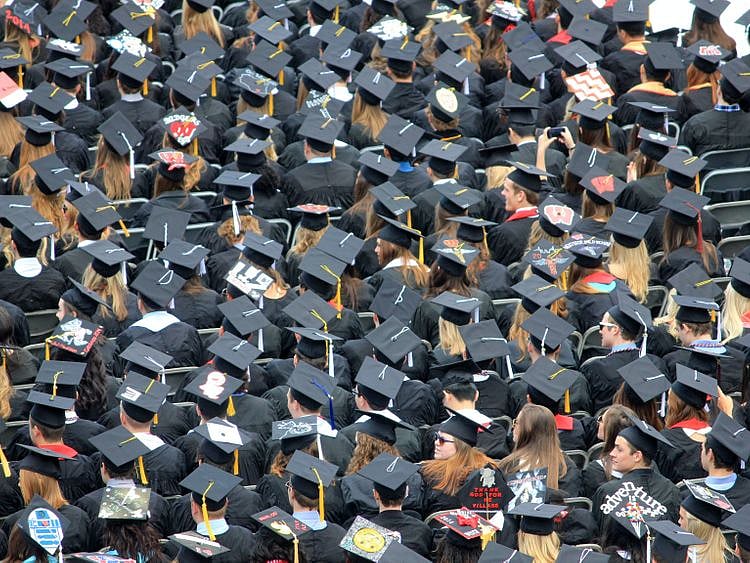Nelson Mandela once said, “Education is the most powerful weapon that you can use to change the world.” It is abundantly clear that the power of this statement is as evident today as when it was first heralded by the late South African President; and, this pronouncement is especially true for the UAE.
Since the formation of the emirates almost 50 years ago, education has been the key driver in the nation’s transformation from an oil-based economy into a thriving knowledge-based society.
Developing a world-class educational ecosystem has been vital to the UAE’s emergence as a major player on the world stage and a key innovation hub.
The pandemic has led many educators to ask important questions about the advantages and disadvantages of the traditional classroom setting; it has also instigated powerful debates on the merits of technology to enhance the learning experience.
One of the key questions that must now be posed is: Can the education sector effectively evolve to ensure that it caters to the needs of a post-Covid society; and, by extension, how can education ensure that it continues to act as a powerful weapon for human progress once the pandemic is finally behind us?
A dramatic transformation
This is not the first time that the higher education model has undergone a dramatic transformation. Following the Second World War, the sector underwent a process of massification, enabling students to access education on a meritocratic basis, thus dismantling the centuries old association with elitism.
This had a profound effect in that it not only diversified the university model itself, but also the university experience by building a more varied student body.
The UAE has long placed a huge emphasis on educational access for all; and, unlike the UK and Australian model that recognises knowledge and experience gained through informal means, the UAE higher education model has been predominantly delivered in traditional university settings. Covid-19 has highlighted that students can receive a high-quality education from home. This has many advantages.
Firstly, it provides opportunities to pupils that, due to cultural or geographical reasons, would ordinarily be reluctant to pursue a higher education. Secondly, online learning can be more affordable as it eliminates costs such as student accommodation and transportation.
A personalised learning style
Additional benefits include improved attendance since classes can be taken from a student’s location of choice; and a personalised learning style that caters to a student’s preferences and strengths whether that’s through audio learning, or visual learning.
Similarly, some students perform better without the bustle of a busy classroom. However, whilst it is clear that online learning has many advantages, it would be erroneous to believe that the future of education lives in the digital world.
Education goes far beyond what is taught in a classroom environment; it is an experience that equips young adults with the soft and hard skills that they need to thrive.
A university setting enables students to engage with a diverse body of people; it empowers pupils to learn about, and acquire a deep understanding, of other cultures, it equips young people with the civic skills that are necessary to participate in civil society.
It is, for many, a journey that marks the transition into adult life, that fuses new experiences and new people into a transformative and highly significant rite of passage. If the aim is inclusivity and access, then pivoting completely away from a traditional university model would be hugely counterproductive. .
A tradition of excellence
Since NYUAD was established ten years ago, it has welcomed more than 3,100 undergraduate students, representing over 115 countries. These students have benefited from the opportunity to build friendships with, and work alongside, peers from nations and cultures that they would never ordinarily be exposed to.
It allows for quiet understanding and appreciation which is garnered through observing, learning and falling in love with ‘difference’ in a variety of scenarios and situations.
The future of education will indeed experience a greater degree of flexibility and personalisation. The popularity of majors around artificial intelligence and computer science is likely to increase and we can expect to see a greater uptake in public health behavioural change, sociology and medicine.
However, ultimately the goal of education remains as it always has been — to prepare young people to take on the challenges of tomorrow. Technology will be crucial to future education systems, but it should never be seen as a like-for-like replacement for physical universities.
The huge losses that our society as a whole would face as a result of such a scenario would far outweigh any benefits. Inclusivity and improved access are vital, but it is important to recognise the role that traditional university settings play in upholding such crucial values.
Fatma Abdullah is Senior Associate Vice Chancellor for Strategy and Planning at NYUAD
Sign up for the Daily Briefing
Get the latest news and updates straight to your inbox
Network Links
GN StoreDownload our app
© Al Nisr Publishing LLC 2026. All rights reserved.
